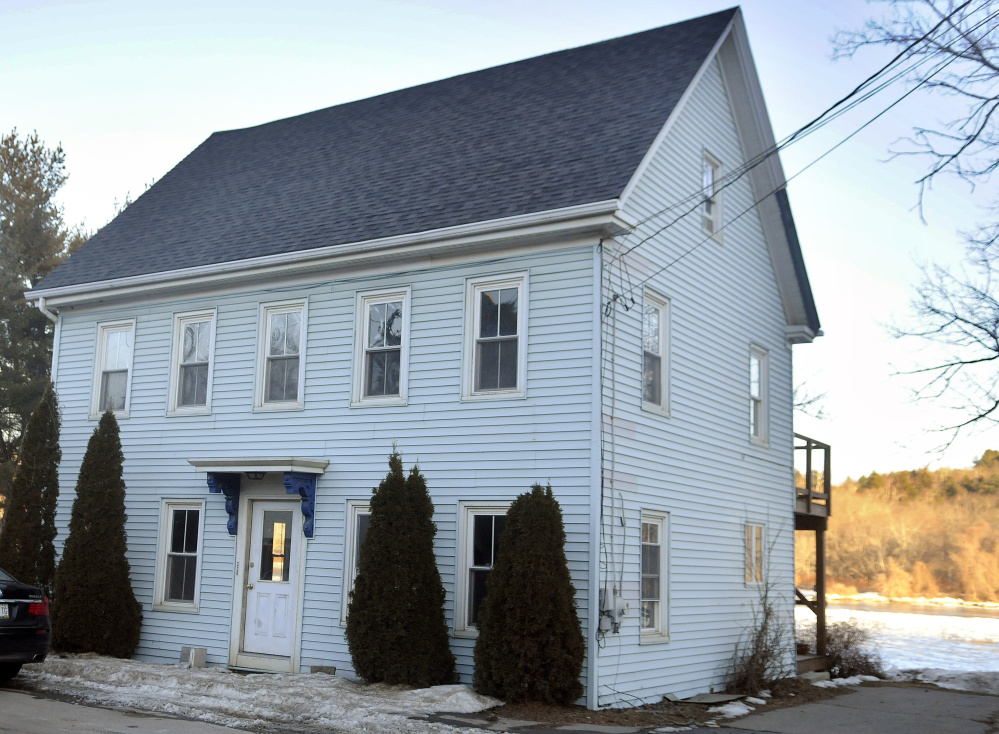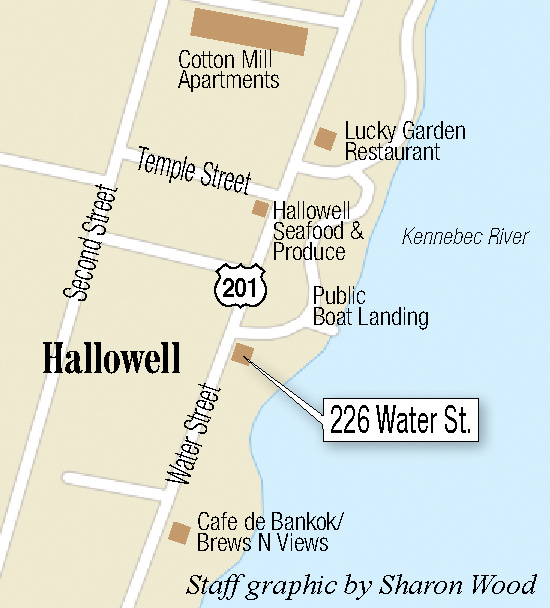HALLOWELL — The Planning Board decided not to vote on the proposed razing of a building at 226 Water St. at its meeting Wednesday night at City Hall.
After a nearly 60-minute discussion, the board voted 4-2 to table the issue until more factual information can be gathered from the Maine Historical Preservation Commission and other sources.
More than a dozen members of the public attended the meeting, and some of them spoke about building owner Steve Hammond’s plan to demolish the structure. The major opposition to the plan came from Row House, the nonprofit organization that seeks to preserve historic Hallowell.
Hammond, who owns four other properties in the city, did not attend the meeting. His contractor, Andrew Beaulieu, and attorney, Walter McKee, spoke on Hammond’s behalf.
McKee provided evidence to support the position that the building lacks any real historical significance: The building does not appear on Row House’s own map of historic structures in Hallowell, and it is not mentioned in the book “Historic Hallowell.”
“At some point you have to make a decision,” McKee said. “Now, we’re going to come back again, but what more information are we going to have?”
The Planning Board went back and forth discussing whether or not they had enough evidence to make a decision on the building’s historical significance. Row House vice president Gerry Mahoney said the group wanted to see a professional analysis of the property, and the board debated the merits of that suggestion.
Hallowell Code Enforcement Officer Maureen AuCoin said she reached out on numerous occasions to the Maine Historic Preservation Commission, which wouldn’t offer any specifics on the building outside of saying it was in Hallowell’s historic district. AuCoin told the board she was unsure what other information she could get before the next meeting.
The demolition of the nondescript, two-story blue building has been opposed by Row House, which argued that it did not meet the criteria for demolition under the city’s ordinance.
Planning Board members Darryl Brown Jr. and Judith Feinstein said they expected more evidence from Row House attesting to the building’s historical significance.
“I personally don’t see any proof of any real historical significance,” Brown said. “I was disappointed in the Row House that they didn’t provide any more evidence.”
Feinstein was miffed that Row House not only didn’t present evidence, but that Row House instructed the Planning Board to hire a consultant to find the evidence instead.
Beaulieu, who said he has worked with Hammond for more than a dozen years, said the developer has some plans for the property. However, Beaulieu said Hammond has had problems with permits in the past and didn’t want to spend money on plans or disclose any plans publicly until the demolition is approved.
At the Planning Board meeting in January, McKee presented the builder’s plan to demolish the structure, which was the law office of Hallowell Mayor Mark Walker for seven years.
Walker submitted a letter to the Planning Board supporting Hammond’s plan to demolish the building.
Row House Inc. said it believes the structure was built in the mid-1850s and was the former residence of a laborer, his wife and their child. Row House president Carolyn Manson and Raymond Hicks said the building had historical significance and represented a different time in Hallowell’s history.
Manson did not attend the meeting Wednesday night because of an illness.
Walker, whose firm now operates on the second floor of a Water Street building in downtown Hallowell, said in January that his former office had no charm and no potential for growth. Walker submitted a letter to the board supporting Hammond’s plan.
The Planning Board is scheduled to meet again at 7 p.m. March 16.
Send questions/comments to the editors.




Success. Please wait for the page to reload. If the page does not reload within 5 seconds, please refresh the page.
Enter your email and password to access comments.
Hi, to comment on stories you must . This profile is in addition to your subscription and website login.
Already have a commenting profile? .
Invalid username/password.
Please check your email to confirm and complete your registration.
Only subscribers are eligible to post comments. Please subscribe or login first for digital access. Here’s why.
Use the form below to reset your password. When you've submitted your account email, we will send an email with a reset code.